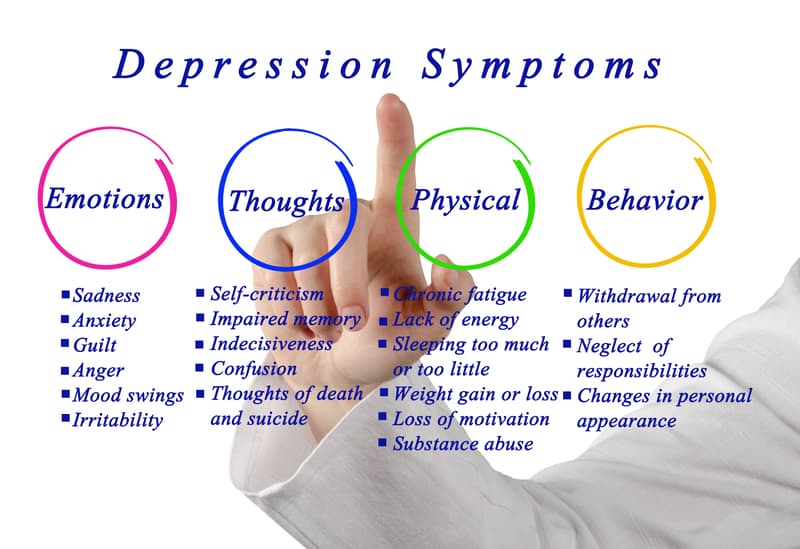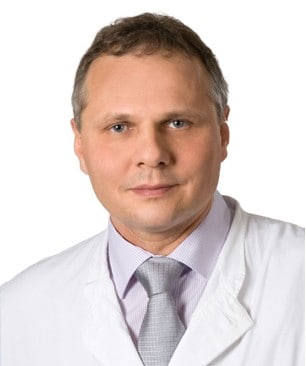Introduction. Recognizing and treating depression

Depression is a psychiatric disorder characterized by persistent feelings of sadness, hopelessness, and loss of interest in activities.
The first step opening the treatment process is recognizing the particular type of depression, each with their own specific symptoms and causes.
Treatment options include psychotherapy, medication, sometime also use of alternative methods.
The most effective treatment method varies depending on the individuals and the type of depression they suffer of.
Recognizing symptoms of depression

Depression is the most common psychiatric disorder worldwide. It counts to the affective disorders impairing emotions. The negative emotions, such as low mood influence the reasoning and the physical wellbeing.
Every person experience depression differently. The depressive symptoms vary individually in severity and duration.
Common symptoms of depression affecting person’s psychological wellbeing are sadness (low mood, sometimes thoughts of suicide), fatigue (low drive), negativistic thinking, social withdrawal and sleep deprivation (insomnia). Thoughts of suicide are hallmarks of depression. Other symptoms include physical symptoms such as headaches, stomach aches, changes in appetite and physical.
What causes depression?
The common factors causing depression:
Brain Chemistry: Abnormal brain chemical levels can trigger depressive symptoms.
Genetics: If you have a depressed relative, you are more likely to become depressed.
Life events: Stress, the death of a loved one, trauma, isolation, and lack of support contribute to the onset of the condition.
Physical disease: Persistent physical pain and illness can lead to depression.
Other factors that can cause depression include:
Hormonal changes: Hormonal imbalances, such as those that occur during pregnancy or menopause.
Social and environmental factors: Social isolation, poverty, unemployment, and other environmental factors.
Medications: Certain medications such as blood pressure medications and others can cause depressive symptoms as a side effect.
Substance abuse: Alcohol and drug use can increase the risk of depression.
How common is depression?
Depression is a common condition that affects people of all ages, genders, and cultures worldwide. It is a serious mental illness that can cause a wide range of emotional and physical symptoms.
The good news is that that the condition is well treatable, and there are many different treatment options available, including therapy, medication, and lifestyle changes. It is essential to seek help from a healthcare professional as soon as possible. The earlier treatment is sought, the better the chances for recovery.
The estimated rate of Americans experiencing depression in a given year is around 7%. According to the National Institute of Mental Health (NIMH), in 2020, an estimated 17.3 million adults in the United States had at least one major depressive episode in the past year, which corresponds to 6.8% of all U.S. adults.
More than 16% of U.S. adults, or about 1 in 6 people, will experience depression in their lifetime, as you mentioned. Women may be more likely to get depressed than men, and people with a family history or other mental health conditions may be at an increased risk of developing depression.
Who treats depression?
Psychiatrist is a medical doctor who specializes in the treatment of mental health conditions, including depression. He can prescribe medications, such as antidepressants, helping to alleviate the symptoms. However, many depressed people also benefit from seeing a psychologist or other mental health professional, such as a licensed clinical social worker or licensed professional counsellor. These mental health professionals can provide different types of psychotherapy, which can help individuals learn new ways of thinking and behaving that can help to reduce the symptoms.
Conclusion. Recognizing and treating depression
It’s important to consult a mental health professional to get a proper diagnosis and develop an appropriate treatment plan.
Both medication and psychotherapy can have their own benefits. The most appropriate treatment plan depends on a variety of factors.
The treatment should be tailored taking in consideration the severity of the symptoms, patient’s personal preferences, and any co-occurring medical or psychological conditions. It is essential that individuals with depression work closely with their psychiatrist and/or psychologist to determine the best course of treatment for their specific needs.
The main medication used in treatment of depression are the antidepressants. They work by altering the levels of certain chemicals in the brain, which can help to improve mood and other symptoms.

DR. GREGOR KOWAL
Senior Consultant in Psychiatry,
Psychotherapy And Family Medicine
(German Board)
Call +971 4 457 4240
